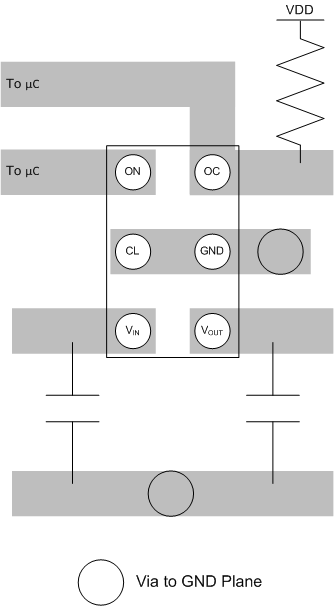SLVS984B September 2009 – March 2015 TPS22946
PRODUCTION DATA.
- 1 Features
- 2 Applications
- 3 Description
- 4 Revision History
- 5 Pin Configuration and Functions
- 6 Specifications
- 7 Parameter Measurement Information
- 8 Detailed Description
- 9 Application and Implementation
- 10Power Supply Recommendations
- 11Layout
- 12Device and Documentation Support
- 13Mechanical, Packaging, and Orderable Information
11 Layout
11.1 Layout Guidelines
- The CIN capacitor should be placed as close as possible to the VIN pin.
- The VIN and VOUT traces should be the appropriate width to carry the load current.
- The CL pin may be connected directly the GND or VIN (depending on the desired current limit). The CL pin may also be left floating.
11.2 Layout Example
 Figure 36. Layout Example
Figure 36. Layout Example